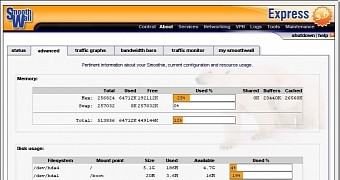The Koozali SME Server development team, through Terry Fage, announced this past weekend the general availability for download and testing of the third Beta build of the upcoming SME Server 9.1 GNU/Linux distribution.
According to the comprehensive announcement, SME Server 9.1 Beta 3 comes with a vast amount of new features, improvements, updated packages, and bugfixes for many of the distribution's core components, including System Backup, File Server, LDAP, Localisation, Mail Server, Server Manager, and Web Server.
Each one of these categories includes many updates that you can see in the release notes posted at the end of the article. The big news of this release, however, is that the SME Server 9.1 GNU/Linux distribution is now based on the CentOS 6.7 operating system, which means that it inherits many of its improvements and security patches.
Prominent features of SME Server 9.1 Beta 3 include new DAR - Disk ARchive version, Windows 10 support to SME Domain, ClamAV 0.98.7, TLS support, SSLEngine is now enabled by default on the SSL vhost, SSLv3 is now disabled by default, new pptpd version, rsync3 compatibility, runit 2.1.2, and Dummy NIC support.
“The Koozali SME Server (SME Server) development team is pleased to announce the release of SME Server 9.1 Beta 3 which is based on CentOS 6.7,” says Terry Fage on behalf of the SME Server development team. “Bug reports and reports of potential bugs should be raised in the bug tracker (and only there, please).”
SME Server 8.2 Release Candidate 2 out now
In addition to the release of the third Beta build of SME Server 9.1, users can now test the second Release Candidate (RC) version of the upcoming SME Server 8.2 distribution, which is based on CentOS 5.11, but includes almost the same features as its bigger brother. SME Server is the leading GNU/Linux OS for small and medium enterprises.
As usual, you can download SME Server 9.1 Beta 3 and SME Server 8.2 RC2 right now from Softpedia, where the OSes are distributed for free as installable-only ISO images for the 32-bit (i386) and 64-bit (x86_64) hardware architectures. Please note that these are pre-release builds, not suitable for deployment on production environments.

 14 DAY TRIAL //
14 DAY TRIAL //